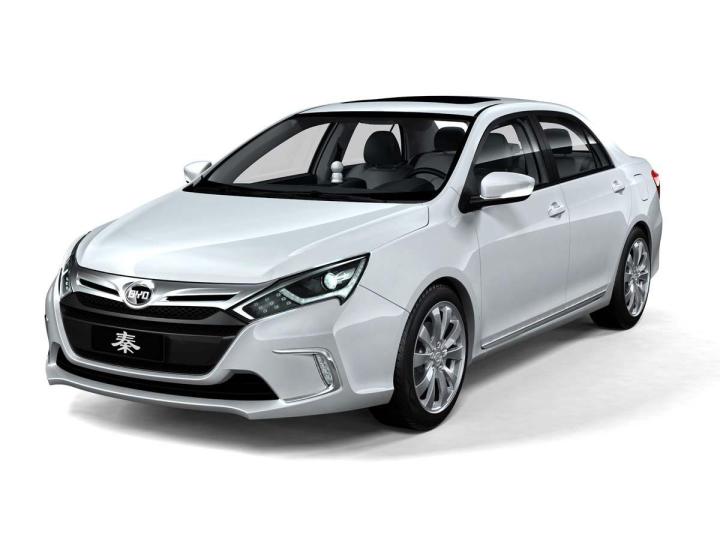
Would you buy a Chinese car? Chinese automakers sure hope so.
China buys a lot of cars – sales in the country surpassed 20 million in 2013 – but its domestic car industry is relatively new. Yet at least one company hopes to make a mark in one of the toughest export markets around: the good ‘ole U.S. of A.
BYD (“Build Your Dreams”) hopes to debut four models in the United States at the end of 2015, the carmaker told Bloomberg.
The car most likely to headline the company’s U.S. launch is the BYD Qin plug-in hybrid sedan (pictured above). Named after the dynasty founded by the emperor who unified China, it features headlights that – according to its maker – were inspired by Chinese calligraphy brushstrokes. To us, though, it looks a bit like it’s been in a crash.
The Qin is powered by a 1.5-liter turbocharged and direct-injected engine, a pair of electric motors, and a 10-kilowatt-hour lithium-iron phosphate battery pack. That powertrain allows for a 0 to 62 mph time of 6.9 seconds, a top speed of 115 mph, and an electric-only range of 31 miles.
The plug-in hybrid went on sale in Beijing last month with a base price of 189,000 yuan, or about $31,400.
This won’t be BYD’s first attempt to break into the U.S. market.
The Chinese carmaker displayed the e6 electric car at the 2009 and 2010 Detroit Auto Shows, but plans to sell it in the U.S. fell through due to weak demand in the home market. The company has also investigated selling the e6 to fleet buyers, including Hertz.
BYD already sells the e6 as a taxi in Colombia and the U.K.
BYD will also build and sell its K9 bus in California. Production at a new plant in Lancaster is expected to start in March, with Los Angeles and Long Beach already signed up for a handful of buses.
Given its track record, BYD’s 2015 U.S. launch is far from a sure thing. It’s short-term success is even less certain.
It took decades for Japanese and Korean carmakers to become established on this side of the Pacific, and many European badges haven’t been seen here for decades because of U.S. consumers’ demanding nature.
If BYD manages to establish a foothold in the U.S., it could be a long time before its cars are genuinely as good as those of established brands.


